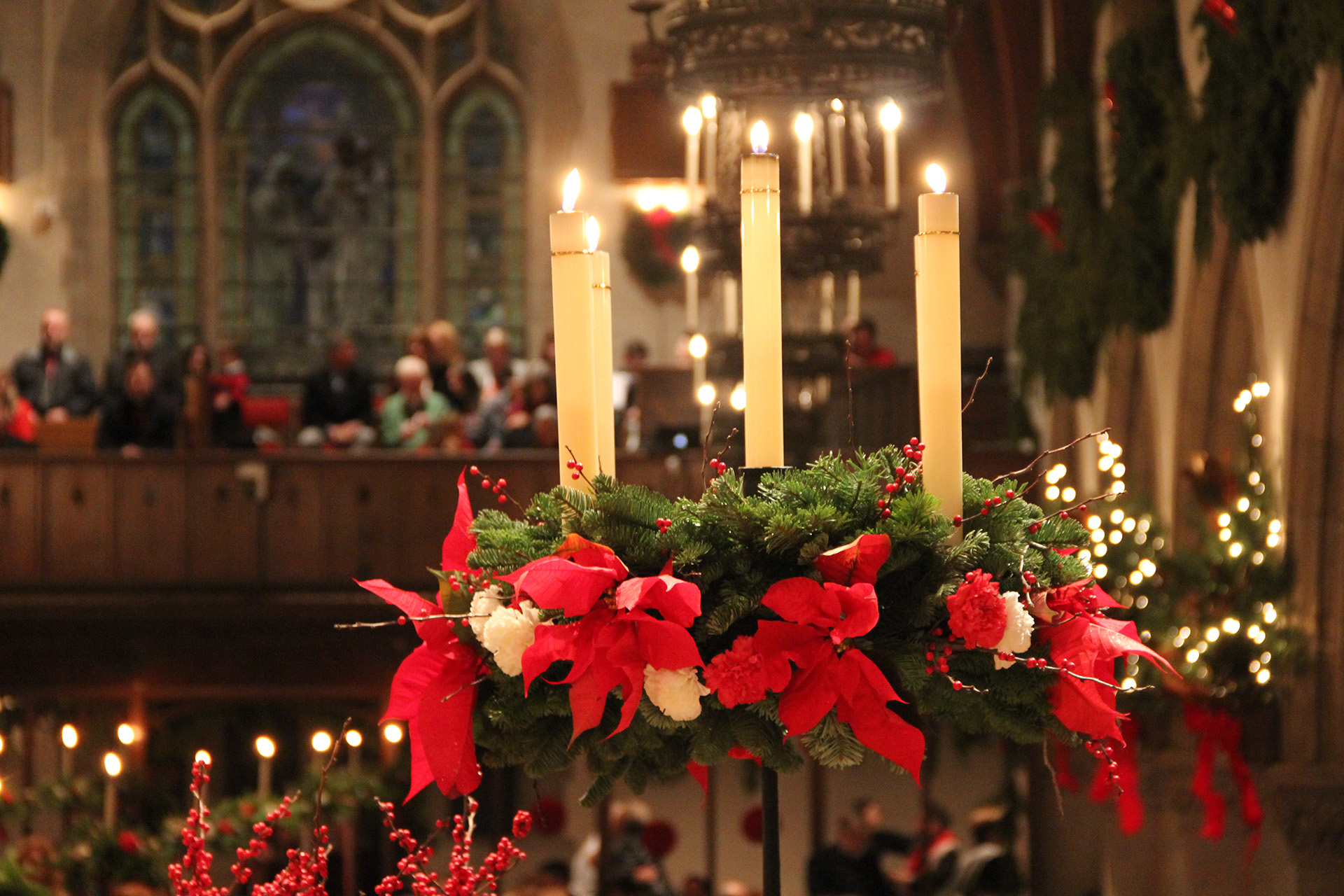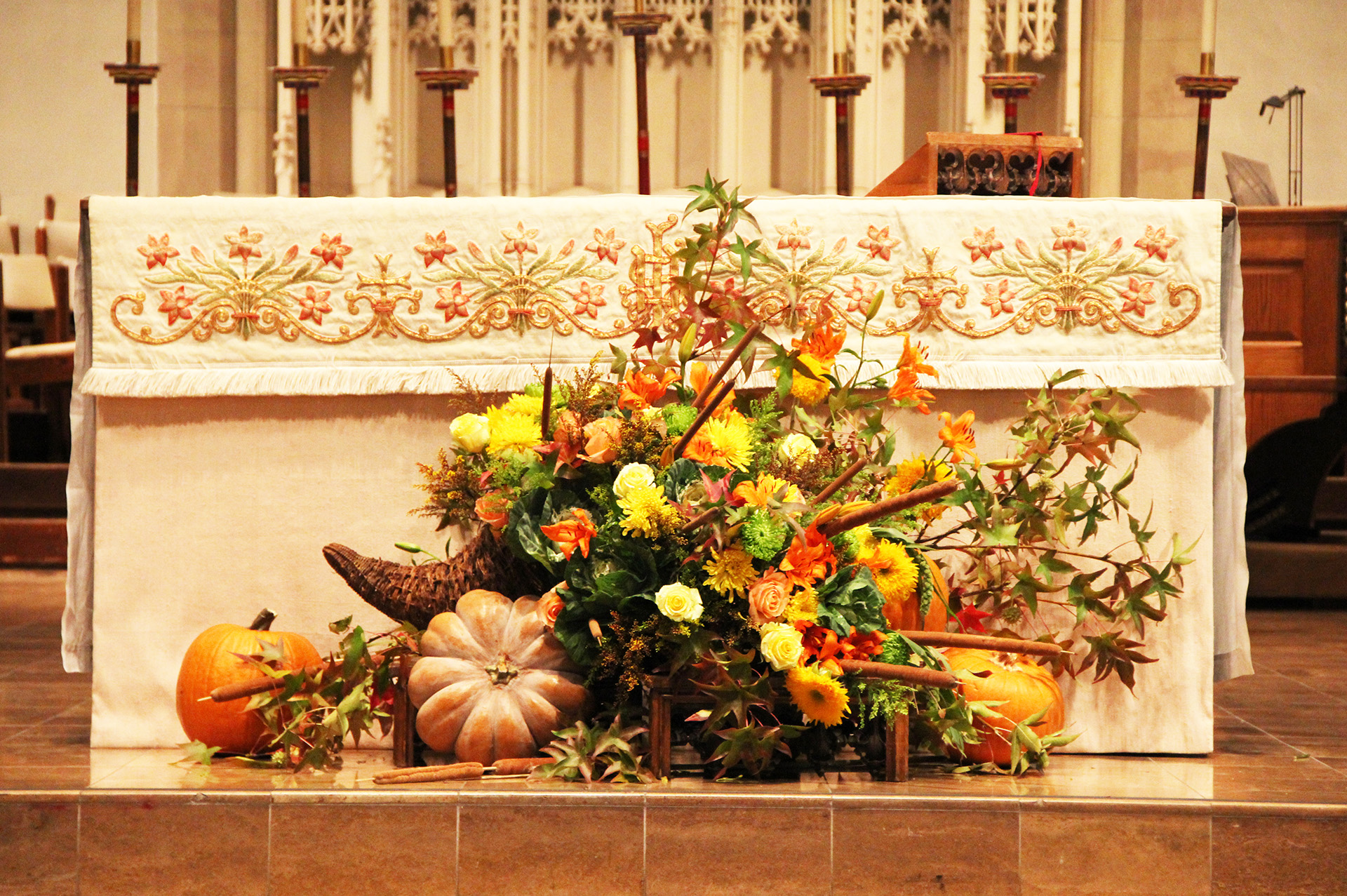The Gospel isn’t meant to be gulped down on Sunday morning, but gnawed on through the week so it really becomes a part of us. You’ve got to work at it, like a dog with a good bone! Here’s the Gospel for this coming Sunday — the Thirteenth Sunday After Pentecost — with food for thought about living our lives differently as a consequence of following Jesus. Gnaw away!
Thirteenth Sunday After Pentecost – Luke 14:25-33
Large crowds followed Jesus. He turned to them and said, “If any of you come to me without turning your back on your mother and your father, your loved ones, your sisters and your brothers, indeed your very self, you can’t be my follower. Anyone who doesn’t take up the cross and follow me can’t be my disciple.
“If one of you were going to build a tower, wouldn’t you first sit down and calculate the outlay to see if you have enough money to complete the project? You’d do that for fear of laying the foundation and then not being able to complete the work – because anyone who saw it would jeer at you and say, ‘You started a building and couldn’t finish it.’ Or if the leaders of one country were going to declare war on another country, wouldn’t they first sit down and consider whether, with an army of ten thousand, they could win against an enemy coming against them with twenty thousand? If they couldn’t, they’d send a delegation while the enemy is still at a distance, asking for terms of peace.
“So count the cost. You can’t be my disciple if you don’t say goodbye to all of your possessions.”
The Backstory – What’s Going On Here?
Jesus is continuing his journey toward Jerusalem. His audience has widened from the Pharisees to “large crowds” that are following him. On one level, these words are the most intense yet. Phrases like “turn your back on father and mother” and “say goodbye to all of your possessions” are difficult to hear, and you can’t just explain that away by our difference in culture from first-century Israel. But there is a recurring theme in play here. Jesus has been hammering away at not being restricted by the law and custom. From the beginning of this section, the parable of the Good Samaritan, Jesus has been blowing up boundaries: clean/unclean, the Sabbath, the social pecking order — all culminating in the statement last Sunday that the humble will be exalted and the exalted will be humbled (14:11).
For the crowd, Jesus’ statements about hating family as a way of discipleship is not an attack on family relationships as we know them. Family — specifically being a part of the family of Abraham – was everything. On a practical level, it provided financial and physical security. But on a deeper level, it provided status as the chosen people of God on earth and also special status with God. Remember that Luke is the Gospel written for a Gentile audience. This passage emphasizes that pedigree doesn’t matter, and following God means rejecting those categories.
A few things to chew on:
*Jesus tells the parables of building the tower and the king raising the army as a way of saying “be sure you know what you’re getting into.” We talk a lot in the church about making our church “accessible” for people, making it easy for people to come to church – not just in physical terms like our Accessibility Ministry – but making church comfortable and easy to fit into your life. But Jesus seems to be saying something different here. Not “make it hard” … but be honest with ourselves and with each other about what we’re about, what we’re inviting people into. That’s also letting ourselves and each other know that there is a reason to be a part of this community that is about something you can’t get anywhere else. Not entertainment, or good music, or friendship, or even beautiful theater. All of those you can get somewhere else. We are about following Jesus and living our lives quite differently as a consequence. How can we do this better?
Try This:
Jesus says, “You can’t be my disciple if you don’t say goodbye to all of your possessions.” Our possessions give us security. Our possessions give us a sense of status. Our possessions give us a sense of identity. Jesus’ words are an invitation to find all those things not in our possessions, but in loving and following Christ. We believe in doing something small as a sign of the whole. We tithe 10% of our income as a sign that we believe God owns it all. This week, pick one thing — something that is meaningful to you — and give it away. Give it away out of joy. Give it away as way of saying that no possession owns you.
Costly Grace
Perhaps the most eloquent commentary ever written on this and similar Gospel passages was by Dietrich Bonhoeffer in his classic The Cost of Discipleship. In this excerpt, he distinguishes between a “cheap grace” which betrays Christ and kills the Church, and a “costly grace” from which true discipleship – and eternal life – springs. I’ll just leave it for you here:
“Cheap grace is the deadly enemy of our Church. We are fighting today for costly grace.
“Cheap grace means grace sold on the market like cheapjack’s wares. The sacraments, the forgiveness of sin, and the consolations of religion are thrown away at cut prices. Grace is represented as the Church’s inexhaustible treasury, from which she showers blessings with generous hands, without asking questions or fixing limits. Grace without price; grace without cost! The essence of grace, we suppose, is that the account has been paid in advance; and, because it has been paid, everything can be had for nothing. Since the cost was infinite, the possibilities of using and spending it are infinite. What would grace be if it were not cheap?
“…Cheap grace is the preaching of forgiveness without requiring repentance, baptism without church discipline, Communion without confession, absolution without personal confession. Cheap grace is grace without discipleship, grace without the cross, grace without Jesus Christ, living and incarnate.
“Costly grace is the treasure hidden in the field; for the sake of it someone will gladly go and sell all that they have. It is the pearl of great price to buy which the merchant will sell all his goods. It is the rule of Christ, for whose sake one will pluck out the eye which causes them to stumble, it is the call of Jesus Christ at which the disciple leaves nets and follows the Christ.
“Costly grace is the gospel which must be sought again and again, the gift which must be asked for, the door at which a person must knock.
“Such grace is costly because it calls us to follow, and it is grace because it calls us to follow Jesus Christ. It is costly because it costs a person their life, and it is grace because it gives a person the only true life….
“Costly grace is the sanctuary of God; it has to be protected from the world, and not thrown to the dogs. It is therefore the living word, the Word of God, which he speaks as it pleases God. Costly grace confronts us as a gracious call to follow Jesus, it comes as a word of forgiveness to the broken spirit and the contrite heart. Grace is costly because it compels a person to submit to the yoke of Christ and follow Christ; it is grace because Jesus says: ‘My yoke is easy and my burden is light.'”
. . . . . . . . . . . . . . . . . . . . . .
Check out the rest of Sunday’s readings
The Lectionary Page has all of the readings for this Sunday and every
Sunday – click here for this Sunday’s readings.
Collect for Sunday
Pray this throughout the week as you gnaw on this Gospel.
Grant us, O Lord, to trust in you with all our hearts; for, as you always
resist the proud who confide in their own strength, so you never forsake
those who make their boast of your mercy; through Jesus Christ our Lord,
who lives and reigns with you and the Holy Spirit, one God, now and for
ever. Amen.
Want to read more?
“The Text This Week” is an excellent online resource for anyone who
wants to dive more deeply into the scriptures for the week.
. . . . . . . . . . . . . . . . . . . . .



